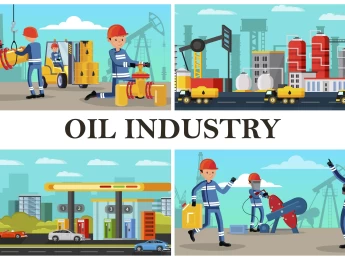As global efforts to tackle climate change intensify, Carbon Capture and Storage (CCS) has emerged as a critical solution for reducing industrial carbon emissions. This foundational course is designed specifically for professionals without a technical background who are engaged in climate-related roles across business, policy, and sustainability sectors. It explores the science, strategy, and societal dimensions of CCS in an accessible and engaging format.
Participants will gain a holistic understanding of how carbon capture works, where and how carbon is stored, the challenges involved in deploying CCS projects, and its broader relevance to climate goals and corporate sustainability. The course provides strategic insights without requiring prior engineering or scientific knowledge.
By the end of this course, participants will be able to:
- Understand the fundamental principles and processes behind Carbon Capture and Storage (CCS).
- Differentiate between key CCS technologies and assess their practical applications and challenges.
- Learn how captured carbon is safely transported and stored, including regulatory and safety considerations.
- Analyse the economic, financial, and policy frameworks that influence CCS adoption.
- Explore the social, ethical, and reputational dimensions of CCS, including stakeholder engagement.
- Evaluate future trends and innovation pathways in carbon capture as part of the global climate response.
This course is ideal for:
- Sustainability and ESG professionals.
- Environmental and climate policy analysts.
- Non-technical staff in the energy and industrial sectors.
- CSR officers and corporate strategists.
- Regulatory professionals and public officials.
- NGO leaders focused on climate action.
- Consultants and advisors in the environmental space.
- Anyone seeking a strategic understanding of CCS without technical depth.
This programme uses a dynamic mix of teaching methods to support diverse learning styles. Delivery will include expert-led presentations, interactive group activities, video case examples, guided discussions, and scenario-based exercises. The focus is on building confidence in understanding and applying CCS concepts in practical, policy, and organisational settings.
Day 5 of each course is reserved for a Q&A session, which may occur off-site. For 10-day courses, this also applies to day 10
Section 1: Introduction to Carbon Capture and Its Climate Role
- The basics of CCS: terms, processes, and environmental significance.
- How CCS fits within the broader context of climate mitigation.
- Overview of carbon sources and the industrial carbon cycle.
- Types of capture: pre-combustion, post-combustion, oxy-fuel explained in simple terms.
- Current global policies and frameworks supporting CCS.
Section 2: Technologies in Action – Exploring Capture Methods
- Key carbon capture methods: how they work and where they’re used.
- Strengths, limitations, and trade-offs between technologies.
- Real-world CCS projects: lessons from global implementations
- Common operational and economic barriers.
- Discussion: Which technologies align with your sector?
Section 3: Safe Storage and Transportation of Captured Carbon
- Where does captured carbon go? Storage methods simplified.
- Geological vs. mineral vs. ocean storage (pros, risks, and regulations)
- The role of infrastructure: pipelines, ships, and transport networks.
- Monitoring and verification: ensuring long-term carbon security.
- Managing environmental and community safety concerns.
Section 4: The Economics and Business Case for CCS
- What does it cost? High-level overview of CCS economics.
- Carbon pricing, tax credits, and international incentives.
- Funding and financing models for CCS deployment.
- The role of public-private partnerships in advancing CCS.
- Incorporating CCS into business models and sustainability plans.
Section 5: CCS in Society – Ethics, Engagement, and the Road Ahead
- Social acceptance and public concerns about CCS projects.
- Communicating risk and benefit: messaging strategies.
- Ethical implications: environmental justice and community equity.
- Stakeholder mapping and engagement for CCS success.
- What’s next for CCS? Trends, innovation, and global momentum.
Upon successful completion of this training course, delegates will be awarded a Holistique Training Certificate of Completion. For those who attend and complete the online training course, a Holistique Training e-Certificate will be provided.
Holistique Training Certificates are accredited by the British Accreditation Council (BAC) and The CPD Certification Service (CPD), and are certified under ISO 9001, ISO 21001, and ISO 29993 standards.
CPD credits for this course are granted by our Certificates and will be reflected on the Holistique Training Certificate of Completion. In accordance with the standards of The CPD Certification Service, one CPD credit is awarded per hour of course attendance. A maximum of 50 CPD credits can be claimed for any single course we currently offer.
- Course Code IND01 - 150
- Course Format Classroom, Online,
- Duration 5 days








